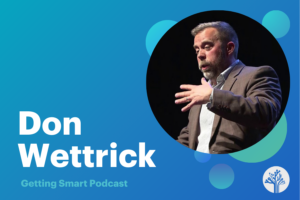What a state with no online options should do
There are still a few states where students can’t all or part of their learning online. Here’s three reasons it makes sense to adopt online learning policies: With the push for high common standards including advanced math and science, there simply aren’t enough qualified teachers to fill needs in many…
Lapoesia, Neruda
I spent a couple hours this week thinking with a friend about how kids (and adults) decide what to do–where to go to college? What to do for a living? I reminded me of David Whyte’s work. Lapoesia (Poem), as David Whyte points out in a Heart…
Learning platforms to come
The next generation of transformative learning platforms will include personalized instruction, social learning, and related services. They will integrate the functionality of learning management, student information systems, and longitudinal data systems. They’ll take advantage of the explosion of data that will come along with assessment embedded in digital content (e.g., score…
PTO: could Preferred Teacher Org provide blended services?
For years, Ted Kolderie has been talking about teacher ownership. After writing the nation’s first charter law in MN in 1991, Ted helped teacher in Henderson set up a coop and apply for a charter. Ted thinks educations should have a variety of professional options like doctors, lawyers, and…
Homework: play a game
eSchool News ran a fairly extensive piece on serious games. Here’s a few excerpts: Moving Learning Games Forward: Obstacles, Opportunities, and Openness,” by Eric Klopfer, Scot Osterweil, and Katie Salen of the Education Arcade, an MIT research division that explores games that promote learning through play,…
Learning a la carte (and how to make it coherent)
Rick Hess has laid out a market-friendly education agenda at American Enterprise Institute, something I appreciate, and recently hosted a form on the demand side of quality education. I participated on a panel; everyone else wrote a paper; I got off easy as ‘discussant’. Kim Smith, founder of…
There is no Frigate like a Book
Robert Weisbuch, president of Drew University, and a big fan of poetry. Someday I’ll join him at the Dodge Poetry Festival. A few years ago he sent me this Emily Dickinson poem: There is no Frigate like a Book To take us Lands away…
Charters show the way forward
Given the US challenge of achieving quality at scale—the combination of equity and excellence—the most important innovation of the last decade is charter networks. Their success is undeniable. Their lessons are clear. Key elements include: clear goals and a strong college-bound no-excuses culture; data-driven instruction and performance-based employment; extended learning…
Feds propose to make it harder to fund start ups
There is little public or private investment in innovation. As pointed out this week, federal spending on edu-R&D is a fraction of what they do in other sectors. Private investors—angel, venture, and private equity—are also leery of a fragmented market that is difficult to penetrate. It’s difficult for edu-entrepreneurs…
A new twist to parent involvement–the 'reset' button
“Parent involvement” in education often means “make your kid behave” and “donate to the PTA.” Parent involvement is taking on a serious new role in Los Angles. If more than half of the parents of students in struggling demand change, educational options improve—charter schools are opened in their neighborhood, their…


